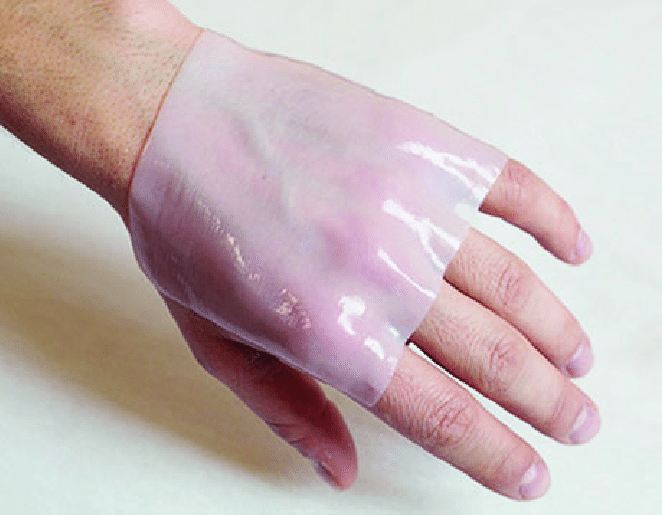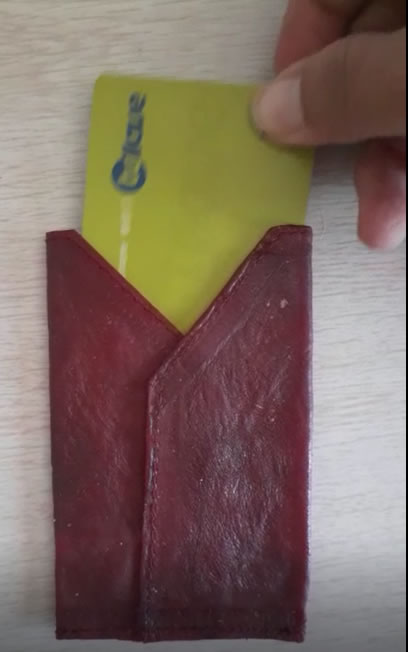Summary
- Profile Type
- Technology offer
- POD Reference
- TOCL20250219033
- Term of Validity
- 19 February 2025 - 19 February 2026
- Company's Country
- Chile
- Type of partnership
- Commercial agreement with technical assistance
- Investment agreement
- Targeted Countries
- All countries
Contact the EEN partner nearest to you for more information.
Find my local partner
General information
- Short Summary
- A Chilean company has developed a biopolymer product, suitable for textiles, such as clothing, bags, bandages, packaging, which is fully biodegradable under composting conditions. In order to expand their market, the company is looking for commercial agreements with textile companies to adapt the polymer to their needs and enter new markets.
- Full Description
-
The Chilean company has developed biopolymers, made from food and agricultural waste products, which can be made into textiles with various applications. This cutting-edge material is fully biodegradable, breaks down naturally under composting conditions within four to six months, and needs no heat or pressure treatment, making it a sustainable and environmentally responsible alternative to plastic. Designed to address the global challenge of plastic pollution, this eco-friendly biopolymer offers versatility across multiple industries. It can be used in various applications, including packaging, disposable products, and materials for the food, cosmetics, and agricultural sectors. Its natural decomposition process ensures minimal environmental impact, making it an ideal choice for companies looking to integrate circular economy principles into their operations. The company works primarily with bacterial cellulose, a polymer obtained by fermentation with microorganisms of the genera Acetobacter, Rhizobium, Agrobacterium and Sarcina , of which the most efficient species is Acetobacter Xylinum. Most of the cellulose used in industry is of plant origin, usually lignin and hemicellulose; however, in the last twenty years, cellulose of bacterial origin has gained importance due to its mechanical properties, purity and high degree of crystallinity, among others, which make it attractive for specific applications.
The company has developed several bacterial cellulose compounds for the textile industry, focused on a young public that has a relationship with the environment and wishes for clothing which is completely biodegradable, containing no element of polyester or synthetic material. Other products include biotextiles, which when placed over a wound, inhibit the entry of pathogenic organisms. The microorganisms emit micro fibres, which connect with others creating mono structures that lodge on the wound. Allowing the open tissue to regenerate by the biomaterial, the nano structure generates a biolaminate which can accelerate healing and has antibacterial properties. The textiles are however extremely adaptable and can have uses in a wide variety of industries, including for packaging and disposable products.
The company is open to collaborations with a range of industries, and is particularly interested in working closely with large textile manufacturers, looking to introduce and develop full biodegradable fabrics into their collection, reducing the production of microplastics, and addressing younger, more environmental conscious consumers. They are also interested in working with companies in the packaging sector, adapting the bacterial cellulose to new uses, and with companies working with technical textiles. As the company explores the development of bacterial cellulose, they are also interested in potential research cooperation. - Advantages and Innovations
-
Advantages:
1. 100% Biodegradable – Decomposes naturally within 4 to 6 months, reducing environmental impact.
2. Derived from Organic Waste – Utilizes sustainable raw materials, promoting a circular economy.
3. Eco-Friendly Alternative to Plastic – Helps combat plastic pollution by offering a renewable solution.
4. Non-Toxic & Safe – Free from harmful chemicals, making it suitable for food and cosmetic packaging.
5. Versatile Applications – Can be used in packaging, disposable products, agricultural films, and more.
Innovations:
1. Upcycling Organic Waste – Converts agricultural and food waste into a high-value biomaterial.
2. Potential for Smart Packaging – Can be integrated with biodegradable coatings or sensors for extended functionality - Stage of Development
- Available for demonstration
- Sustainable Development Goals
- Goal 17: Partnerships to achieve the Goal
- Goal 13: Climate Action
- Goal 12: Responsible Consumption and Production
- IPR status
- No IPR applied
Partner Sought
- Expected Role of a Partner
- The ideal partner is expected to play a key role in securing either a business agreement—preferably focusing on the exportation of the product from Chile to international markets—or a development and research partnership. In both cases, the partner would collaborate closely with the company to drive growth, innovation, and expansion. Through these agreements, the partner will help enhance the product’s market reach, support sustainable development, and explore new applications and improvements, further positioning the biopolymer as a leading alternative in the global market,
- Type and Size of Partner
- University
- SME 11-49
- R&D Institution
- Type of partnership
- Commercial agreement with technical assistance
- Investment agreement
Dissemination
- Technology keywords
- 06002008 - Microbiology
- Market keywords
- 09004006 - Packing products and systems
- 09004003 - Textiles (synthetic and natural)
- 09005 - Agriculture, Forestry, Fishing, Animal Husbandry & Related Products
- 08004004 - Other pollution and recycling related
- Targeted countries
- All countries



